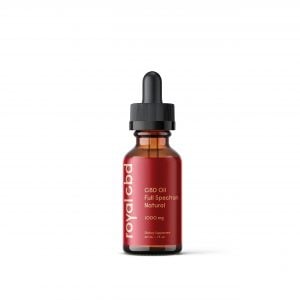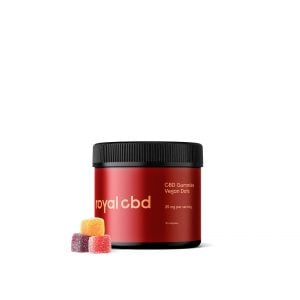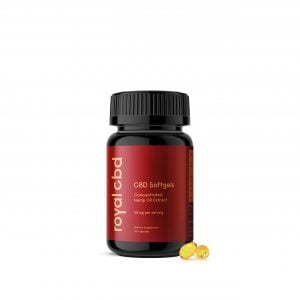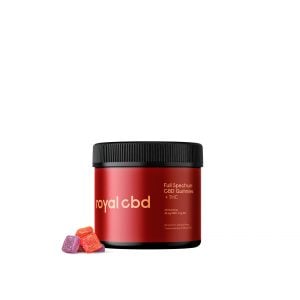A recent 2019 study made big headlines when the authors announced that CBD can cause liver damage.
However, the study was conducted on mice and the scientists force-fed them with ridiculously large doses of CBD oil.
When you try to translate this amount of CBD into humans, you’ll notice people don’t use that much CBD on a daily basis.
The market for CBD products has exploded in recent years, but the side effects of CBD oils are relatively understudied.
As a result, you can find a lot of misinformation out there.
Here we explain the ins and outs of CBD and liver health. We’ll juxtapose the aforementioned study with a more recent research paper — providing an all-around answer.
Can CBD Cause Liver Damage?
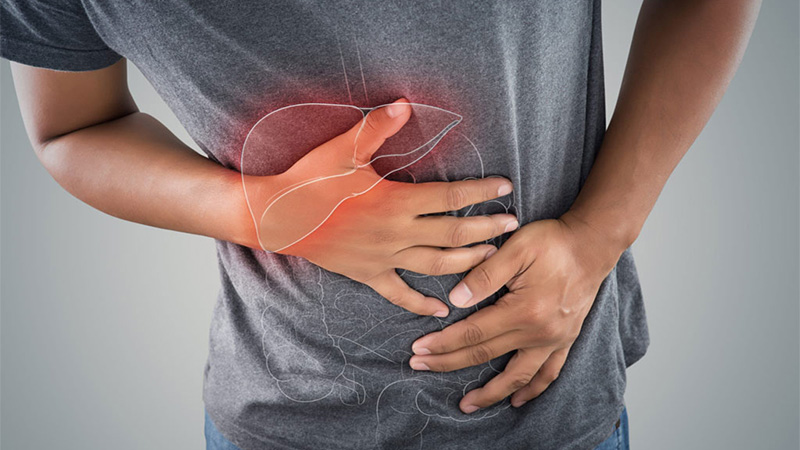
Up until 2019, CBD was widely considered a safe compound. Even the World Health Organization (WHO) acknowledged its safety and tolerability in humans, stating that doses up to 1,500 mg administered daily don’t cause dangerous side effects.
But then, we had that infamous mouse study that came up with unnerving conclusions. The authors said high doses of CBD might lead to liver damage.
Should we be concerned about potential liver toxicity in CBD oil users?
Let’s take a closer look at that study.
CBD and Liver Damage: What One Study on Mice Found
Quoting a “lack of comprehensive toxicological studies devoted to CBD safety that are critical for further marketing of CBD and CBD-containing products,” scientists from the University of Arkansas analyzed the effects of various doses of CBD on several 8-week-old mice.
While the mice generally tolerated their treatment, those given the largest dose — a human equivalent to 200 mg of CBD per kg — indicated the risk of liver toxicity.
The researchers also found that repeated doses of a smaller amount of CBD — 50 mg of CBD per kilogram when translated into humans — also showed signs of liver damage.
“Although (a dose of) 200 mg of CBD per kilogram of body weight is not applicable to most real-life scenarios, it does provide critical information regarding the potential consequences of CBD overdose as well as for doses needed for further subchronic and chronic toxicity studies,” continued the authors.
200 mg of CBD per kilogram means that a person weighing 70 kg would need to take 14,000 mg of CBD daily.
Indeed, the above study is far from most real-life scenarios. It’s more of science fiction, leaning toward fiction rather than science.
New Clinical Trial on Humans: CBD Doesn’t Cause Liver Damage
A seven-month-long clinical investigation on humans conducted by Validcare shared their initial finding on 23rd March 2021. The researchers reported that of 839 participants, none of them showed signs of liver damage or disease. They also didn’t notice elevated liver function tests when compared to a population with a similar rate of medical conditions.
Here’s what the authors said:
“Our Primary endpoint in this study is to observe potential liver effects in adults ingesting oral forms of hemp-derived CBD for a minimum of 60 days. What we observed to date is no clinical evidence of liver disease in any participants. We observed slight, clinically insignificant elevations of liver function tests in less than ten percent of consumers irrespective of age, product composition and form, and the amount consumed. Three of the 839 participants had 3x normal levels of the liver enzyme ALT. These three consumers are taking prescription medications that are known to elevate liver enzymes and we are investigating whether prescribed medications or other factors contribute to these outliers.”
Interestingly, almost 70% of study participants enrolled in the study with a medical condition and taking medications for them, without an increase in reporting of side effects. This could explain why, despite the potential risk of CBD-drug interactions, clinical reports lack evidence of CBD-induced drug toxicity in patients who use CBD and their medications concomitantly
Nobody Uses Such High Doses of CBD Daily
As you can see, the myth about CBD causing liver damage stems from a poorly designed study that was conducted simply to prove a point — that it’s possible to reach liver toxicity with astronomical amounts of CBD. You could use any other substance and come up with the same conclusion.
The point is that nobody uses such high doses of CBD daily. People usually take up to 100 mg per serving, which is already considered a high dose. Medical studies examining the efficacy of CBD tested doses as high as 300 mg, 600 mg, and 1500 mg — showing no signs of liver toxicity in subjects.
Long story short, people need to be careful if they consume high doses of CBD oil — similar to other supplements — but there’s no need to be afraid of liver damage.
Unless, of course, you take 14,000 mg of CBD per day.
Does CBD Cause an Increase in Liver Enzymes?
Research conducted on the effects of CBD on liver function has yielded conflicting results.
One study found that 10% of participants had elevated levels of liver enzymes and had to cease their CBD use. Other studies suggest that CBD can be beneficial for liver function.
Since CBD needs to pass through the liver, patients should limit over-the-counter substances to avoid potential CBD-drug interactions and reduce the burden on the liver.
Your liver enzymes shouldn’t go beyond their normal range if you don’t take more than 20 mg of CBD/kg.
Safe CBD Dosage for the Liver
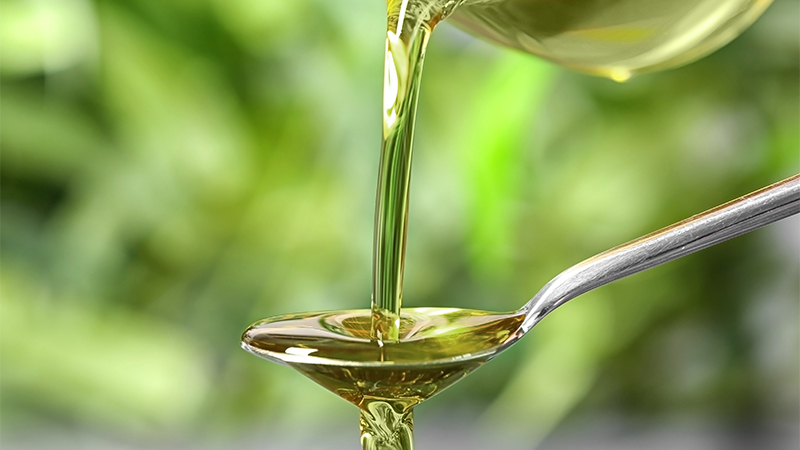
Sticking to the right dose appears to prevent potential liver damage from taking CBD, but does that mean CBD users are completely risk-free?
Not at all.
No federal administration regulates CBD products sold over the counter, so you may be taking more or less, or even none of the CBD advertised on a product.
For example, a recent report by cannabis testing lab CannaSafe to California’s Bureau of Cannabis Control (BCC), found that up to 80% of CBD products fell short of label claims. The good news is that contamination of pesticides in cannabis products dropped from 25% to 5%.
Furthermore, recommended doses of CBD vary between manufacturers, from as little as 2.2 mg to as much as 50 mg or 100 mg per serving.
The optimal dose for your situation will depend on a few personal factors, such as weight, age, metabolism, gender, your goals with CBD, and the potency of your product.
The best method to find your sweet spot is to start with 5–10 mg of CBD and try it out for a few days, observing how your body responds. If that dosage turns out insufficient, increase the amount of CBD by another 10 mg — and continue your supplementation for another week.
If you know a holistic doctor experienced in CBD and cannabis use in general, talk to them for professional advice about the dosage.
What Are the Other Side Effects of CBD?
CBD has a favorable safety profile. Unless you take ridiculously high doses of CBD oil, your liver should be all good.
People turn to CBD because it’s a low-risk alternative to other available health supplements. However, you need to be aware of a few mild side effects, such as:
- Appetite fluctuation
- Dizziness
- Dry mouth
- Diarrhea
- Sedation
Some of these side effects may stem from taking a contaminated product with more than 0.3% THC, or one that has been extracted from mass-produced hemp or with aggressive solvents. Regular doses of high-quality CBD oil shouldn’t cause any of these reactions.
However, there’s a risk of negative CBD-drug interactions.
Here’s what you need to know if your doctor prescribed you pharmaceutical drugs and you want to incorporate CBD oil into your regime:
Be Cautious When Using CBD With Medications (CBD-Drug Interactions)
While the discussed studies touch on the subject of overall liver toxicity, research highlights another potential problem with CBD: the risk of negative interactions with prescription drugs.
The liver uses a system of enzymes called cytochrome P450 (CYP450), which breaks down drugs into metabolites so that our cells can absorb them more efficiently and then eliminate them once the body has used them.
Although the effects of CBD on CYP450 enzymes in regular users are minimal, patients taking prescription drugs should be cautious when mixing CBD with their medications.
The best you can do is consult your doctor to establish the right dosage and schedule for both substances. Doing so will help you avoid potential interactions.
CBD and Liver Damage: Bottom Line
While we still have a lot to learn when it comes to the long-term safety of CBD, some studies should be taken with a grain of salt. CBD is a hot subject, so whenever there’s an opportunity to prove something controversial, scientists consider it to be worth its weight in gold.
CBD shouldn’t cause liver damage in normal doses. You’d need to take upwards of 10,000 mg CBD daily — an equivalent to 10 bottles of 1,000 mg CBD oil. Nobody is that extreme.
Of course, we recommend taking caution if you take CBD oil for the first time. As with every new compound that you introduce to your body, you need to monitor its reactions and adjust the dosage as needed.
A consultation with a CBD-friendly doctor should help you find the right dose for your situation — and schedule your supplementation with other supplements or medications so that no negative interactions occur.
Sources:
- Ewing, L. E., Skinner, C. M., Quick, C. M., Kennon-McGill, S., McGill, M. R., Walker, L. A., ElSohly, M. A., Gurley, B. J., & Koturbash, I. (2019). Hepatotoxicity of a Cannabidiol-Rich Cannabis Extract in the Mouse Model. Molecules (Basel, Switzerland), 24(9), 1694. [1]
- Hardin, S. (2021). Clinical Study Reports Preliminary Results of Liver Safety. Validcare.
- Iffland, K., & Grotenhermen, F. (2017). An Update on Safety and Side Effects of Cannabidiol: A Review of Clinical Data and Relevant Animal Studies. Cannabis and cannabinoid research, 2(1), 139–154. [2]
- Avraham, Y., Grigoriadis, N., Poutahidis, T., Vorobiev, L., Magen, I., Ilan, Y., Mechoulam, R., & Berry, E. (2011). Cannabidiol improves brain and liver function in a fulminant hepatic failure-induced model of hepatic encephalopathy in mice. British journal of pharmacology, 162(7), 1650–1658. [3]
- Riley, A. (2019). California Cannabis: A Lab Perspective. CannaSafe.
